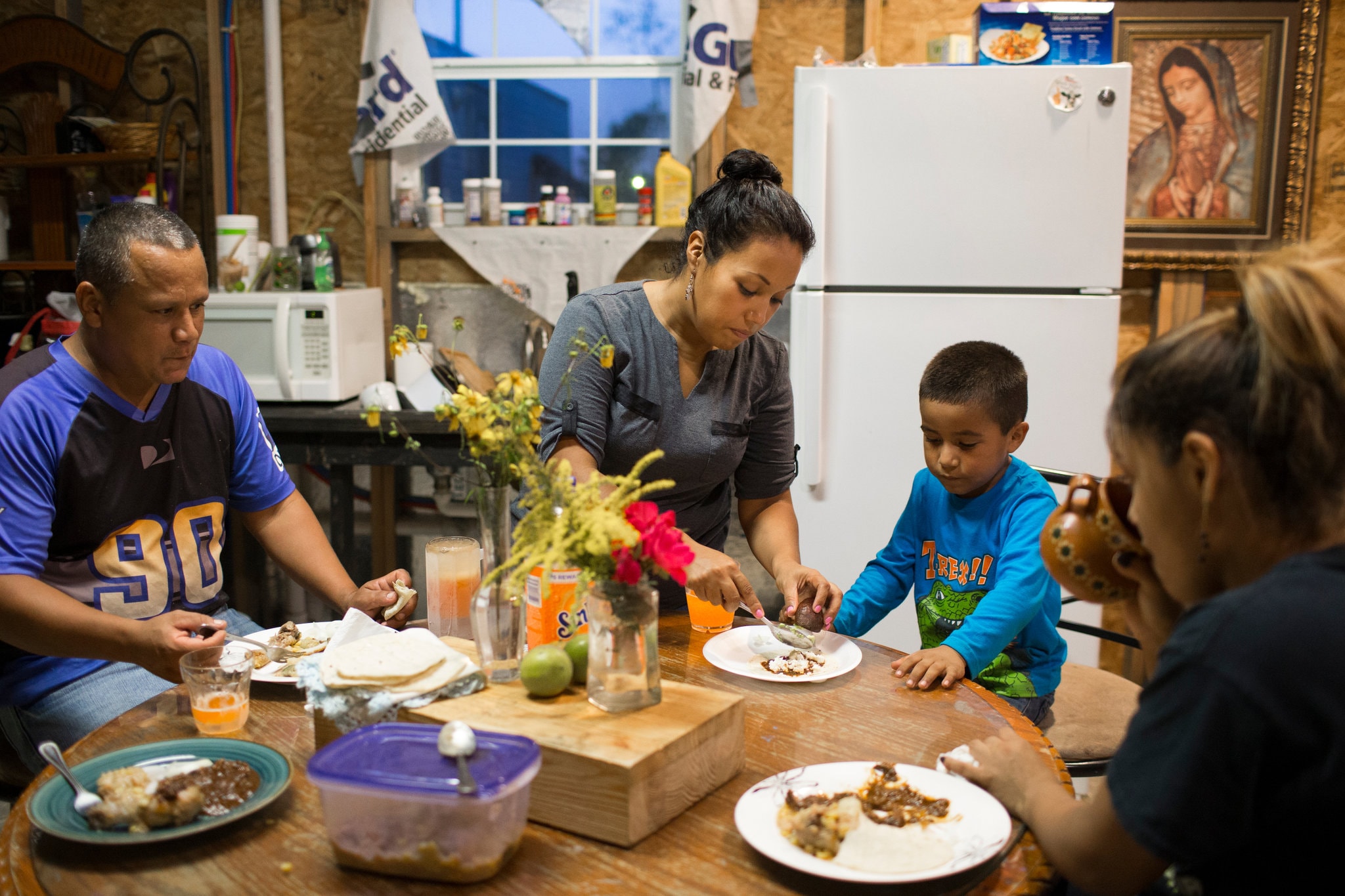13 interesting questions related to 'family meals'
Why should families eat dinner together regularly? How many times a week is enough? What should parents do if their children are picky eaters? Is it good to have the TV on while eating? If parents are too busy, how should they organize family meals? How can teenagers enjoy family meals together? These questions will be answered one by one by a famous American psychologist.
Dr. Anne K. Fishel is the co-founder of the Family Dinner Project and a clinical psychologist, teacher, blogger, and family therapist… She is an Associate Professor of Clinical Psychology at Harvard Medical School and Director of the Couples and Family Therapy Program at Massachusetts General Hospital in Boston (USA).
 |
| Dr. Fishel is also the author of several popular published works. |
Below are her answers to common questions people have regarding family meals.
1.Why should we have dinner together more often?
Most American families are starved for time together, and dinner may be the only time of day when we can reconnect; when we eat dinner together, most individual activities like playing video games, sending emails, and doing homework… get “left behind.” Dinner is a time to relax, laugh, tell stories, and catch up on the ups and downs of the day, while also growing in our sense of who we are as a family.

2. Are there any scientific benefits to family dinner?
Over the past 15 years, scientists and researchers have confirmed what many parents have known for a long time: that sharing a family meal together has positive benefits for the mind, brain and health of all family members. Recent studies have also shown a link between regular family dinners and the practice of “having parents pray before meals” contributing to lower rates of substance abuse among family members, reduced depression and higher self-esteem.
Studies have also shown that dinner conversation leads to “better vocabulary mastery,” that children are more likely to read books than read, and that stories told around the kitchen table help our children develop better coping skills. Additionally, eating food at the dinner table as a family on a regular basis has been linked to lower rates of obesity and eating disorders in children and adolescents. Families can reap all of these benefits in as little as an hour a day!
3.How many times a week should we have dinner together?
Studies show that families who eat dinner together five times a week reap huge benefits, but that number is not a requirement. If your family can only manage to get together for breakfast or lunch, that’s fine too.
4.We are so busy. How can we find time to cook and eat together?
Time is definitely one of the biggest obstacles to getting families together for dinner. If you’re too busy, it might just be a big pot of soup, or some meals can be made quickly with the help of store-bought ingredients, like pre-cut vegetables, or pre-made pizza dough… There are also many recipes that take less than 15 minutes…
But, if you think of family dinner as a time to nurture the family, prevent potential rifts, increase children's cognitive abilities, and bring joy… to help build for the rest of our lives, then we will certainly know how to prioritize mealtime.

5.Is it wrong to eat dinner in front of the TV?
A family dinner in front of the TV certainly affects the enjoyment and benefits of conversation. Researchers have found that meals eaten in front of the TV do not provide mental health benefits. However, occasionally watching a special program while eating a family meal, especially if it is a program related to family issues, can also be beneficial.
6.How much help is reasonable from family members in preparing dinner? In cleaning up? Should parents do all this themselves?
Most children want to help and should be encouraged to do so. The trick is to find out which tasks are developmentally appropriate for your child. Even young children can be asked to sprinkle spices, stir stews or wash vegetables… Elementary school-aged children can set and clear the table, pour drinks and help prepare food.
Many teens see cooking as an avenue for self-expression and may enjoy the idea of making a meal or part of a meal. Sharing in all the dinnertime duties—grocery shopping, menu planning, cooking, cleaning, and tidying up—only makes this family event more enjoyable. If someone feels overwhelmed, roles and responsibilities should be rethought and distributed more equitably.

7.What are some conversation suggestions for young children during meals?
Even if children cannot have longer conversations, they always want to be involved in stories. Parents sometimes, simply asking “What did you do today?” will give a cheerful answer about what they saw on the walk or did during playtime… Parents can also ask children to describe their favorite game, cartoon or toy will also stimulate their interest and create interactive responses. You can ask, “What can your favorite cartoon character or toy do…?”.
8.Whenever everyone gets together there is an argument, how can parents prevent this atmosphere at the dinner table?
Some families argue about specific topics, like a messy room or a recent science class incident. Other families seem to use arguing as a way to communicate with each other. In this case, parents may also want to set some ground rules. Agree on not talking too loudly, too much, or not continuing those topics at dinner to reduce mealtime fighting.
9.How can parents teach children good manners and not make the dinner atmosphere unpleasant?
Parents can focus on teaching their children good manners by reminding them to be respectful during meals, to listen when others are speaking; to teach children not to talk with their mouths full of food or not to fight over food with each other… These manners are things that parents can also try to improve themselves, which will make children follow suit.
10. I have a family member who is on their phone/texting during meals and it drives me crazy. How can I get my child to stop?
Parents can ask their children to try a trial without their phones or text messages for a week or two to see how the conversation and atmosphere at the dinner table improves. Or, parents can ask their children to only use their phones to facilitate conversation, for example, to find a movie time, define a word, or resolve an ongoing family dispute.
11. My child is a picky eater, what should parents do to encourage their child to try different foods?
The worst strategy is for parents to force their children to eat foods they don’t want or to restrict foods. If you want your child to be a non-picky eater and to try new foods, you shouldn’t tell them, through barter or punishment, “You won’t be allowed to have your favorite dessert until you finish all your vegetables.”
Another common mistake is giving up too easily if a child refuses a new food. Researchers have found that it can take between eight and 15 new foods for children to decide they like one.

12. Children are too young to sit still during long meals. How can you get them to sit still?
Toddlers shouldn't sit for more than 10 or 15 minutes, and some can only sit still for 5 minutes. It's best to keep dinnertime short and fun when children are around.
Also, as they get older, parents need to realize that eating is not the same as studying, so they can wear comfortable clothes, sing during meals, and offer their children ice cubes made from their favorite fresh fruit juice after they have eaten their meals.
13.How do you keep your teen interested in family dinners, when there are so many other activities to distract them?
You may be surprised to learn that when teens are asked how important family dinners are, they rank them very high on their list of priorities. So, parents, know that your teen wants to have dinner with you. If not, start by asking what would make dinner more enjoyable for your teen.

Here are some family meal ideas for parents with teenagers:
- - Agree that dinner will be off-limits to discussing conflicts, no talking about homework, no talking about math test scores, no talking about what time it is on Friday night…
- - Suggest making a new meal based on your teen's interests - if they're learning about South African history or Indian literature, look online and find recipes based on the place they've just learned about…
- - Suggest to your child to take a cooking course or take on part of cooking something special, something that can be done quite quickly and that your child will enjoy…
- - Create a weekly dinner ritual by inviting your child's friends over for dinner or dessert. You can also ask your child to choose the music to listen to during dinner. This will also give you a good idea of what your child is likely to enjoy and be interested in…

